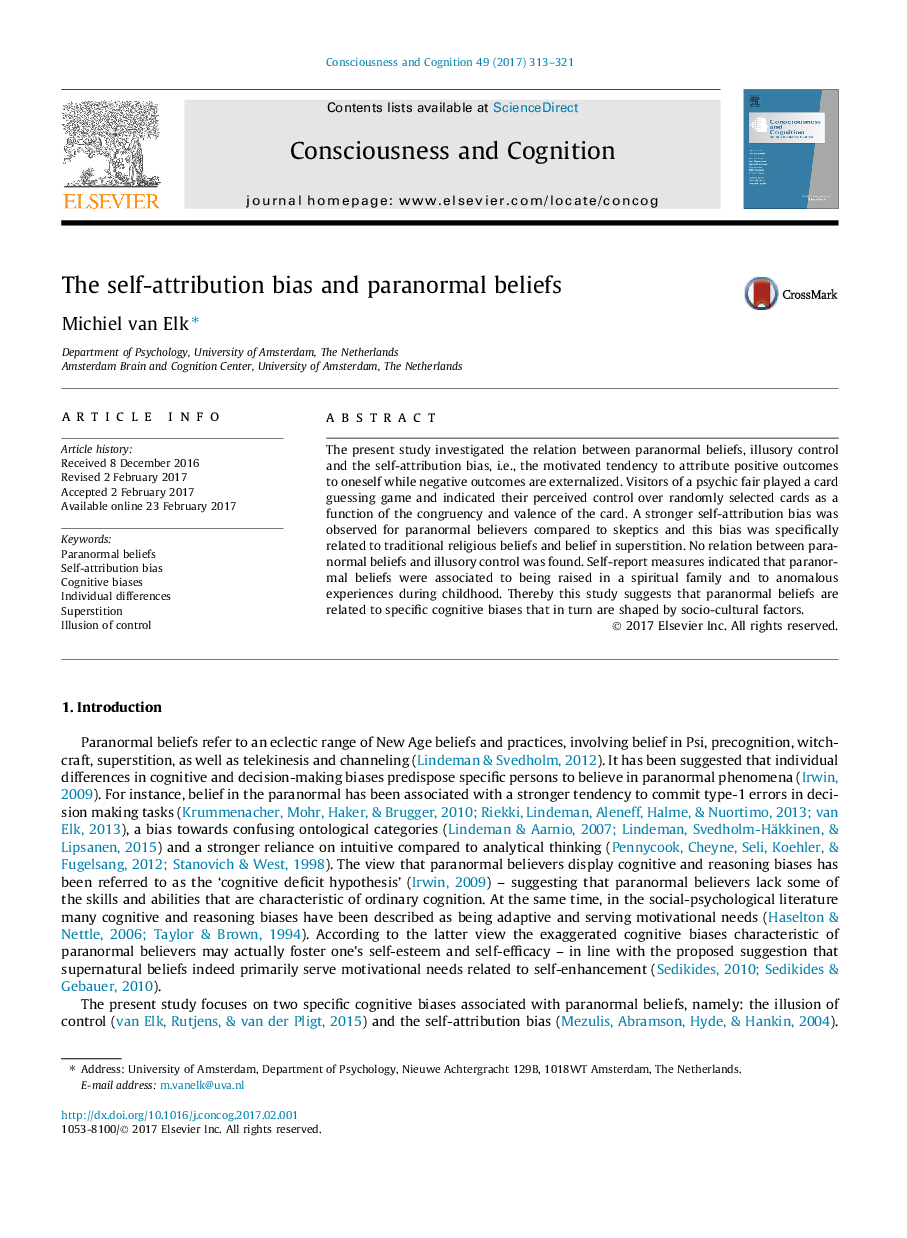| کد مقاله | کد نشریه | سال انتشار | مقاله انگلیسی | نسخه تمام متن |
|---|---|---|---|---|
| 5041879 | 1474162 | 2017 | 9 صفحه PDF | دانلود رایگان |
• Paranormal believers displayed a stronger self-attribution bias than skeptics.
• Paranormal believers were not characterized by a stronger illusion of control.
• Paranormal beliefs were associated to being raised in a spiritual family.
• Paranormal interest was often triggered by anomalous experiences during childhood.
The present study investigated the relation between paranormal beliefs, illusory control and the self-attribution bias, i.e., the motivated tendency to attribute positive outcomes to oneself while negative outcomes are externalized. Visitors of a psychic fair played a card guessing game and indicated their perceived control over randomly selected cards as a function of the congruency and valence of the card. A stronger self-attribution bias was observed for paranormal believers compared to skeptics and this bias was specifically related to traditional religious beliefs and belief in superstition. No relation between paranormal beliefs and illusory control was found. Self-report measures indicated that paranormal beliefs were associated to being raised in a spiritual family and to anomalous experiences during childhood. Thereby this study suggests that paranormal beliefs are related to specific cognitive biases that in turn are shaped by socio-cultural factors.
Journal: Consciousness and Cognition - Volume 49, March 2017, Pages 313–321
